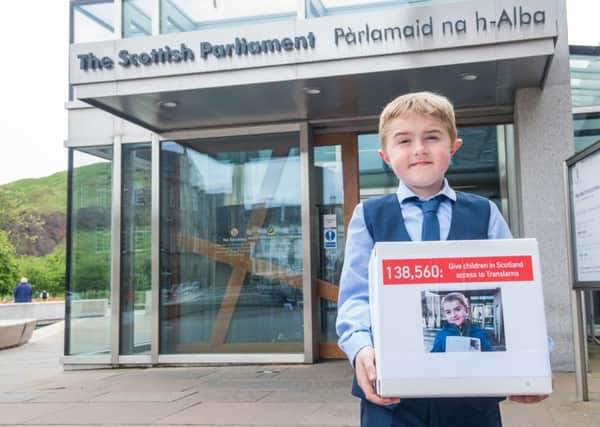Lizzy Buchan: Bold action is needed over NHS access to rare drugs


Audit Scotland did not mince its words in a critical report on the state of the NHS, while politicians piled in to accuse the SNP of “staggering mismanagement” of the health service.
Everyone from health policy experts, to nurses, doctors, carers and hospital porters have said things cannot continue the way they are going.
The NHS clearly needs help. So what is being done about it?
Advertisement
Hide AdAdvertisement
Hide AdApart from the much-trumpeted free prescriptions policy, the SNP’s biggest reform has been the integration of health and social care.
Yet auditors found that efforts have floundered in the face of soaring costs, staffing pressures and unprecedented savings targets, while the bulk of funding still goes to hospitals.
It seems that far too much attention is being given to Yes or No, or Leave or Remain, rather than preserving Scotland’s health service for the future.
One area that clearly needs addressing is the cost of new medicines – what the NHS will or will not pay for.
The Audit Scotland report found the NHS budget rose by 2.7 per cent from last year to £12 billion but spending on drugs shot up by 10 per cent between 2012/13 and 2014/15.
The Scottish Government predicts that drugs spending will continue to rise by 5 to 10 per cent each year.
A major review into how treatments are allocated is about to be published, carried out by former NHS Fife medical director Dr Brian Montgomery on behalf of the Scottish Government.
Currently, the Scottish Medicines Consortium (SMC) examines submissions from drugs companies and decides which to approve for routine use.
Advertisement
Hide AdAdvertisement
Hide AdPatient groups and doctors can speak to the SMC about medicines for rare conditions or life-extending treatments through a system called the PACE process but critics say it is not transparent enough.
Individual patient treatment requests (IPTR) have left patients confused, as a patient in Aberdeen can access a drug, while one in Dumfries will miss out.
There have been a number of high-profile cases, such as breast cancer patient Anne Maclean-Chang and Michael Young, a nine-year-old with duchenne muscular dystrophy, both of whom were only given their medicines when the First Minister intervened. There will be many others out of the spotlight, who miss out. I sympathise with the decision-makers, as how on earth do you put a price on allowing someone a few extra months with their family? Or tell them the drug they need exists but they can’t have it?
Yet shelling out thousands of pounds for drugs that prolong life by a few months becomes more and more difficult to justify as the NHS sinks into deeper financial problems.
Allowing the SMC to negotiate with drugs companies on prices would be a good start as these firms cannot hold the health service to ransom with exorbitant charges.
After all, there is no point in developing a drug that no-one can use.
People can ask to attend an SMC meeting as an observer but more should be done to ensure decisions are adequately explained to patients.
These are really tough choices so there must be a robust and transparent system in place to cope.